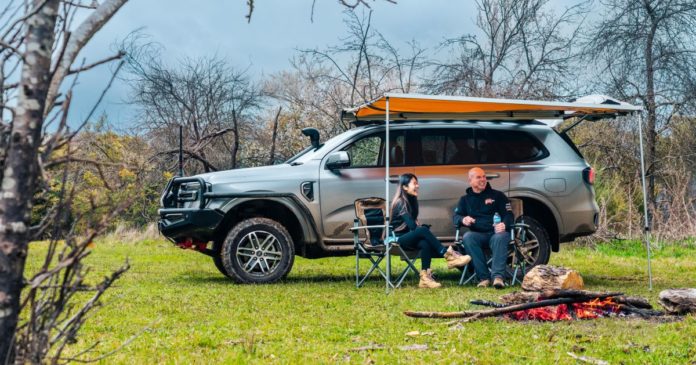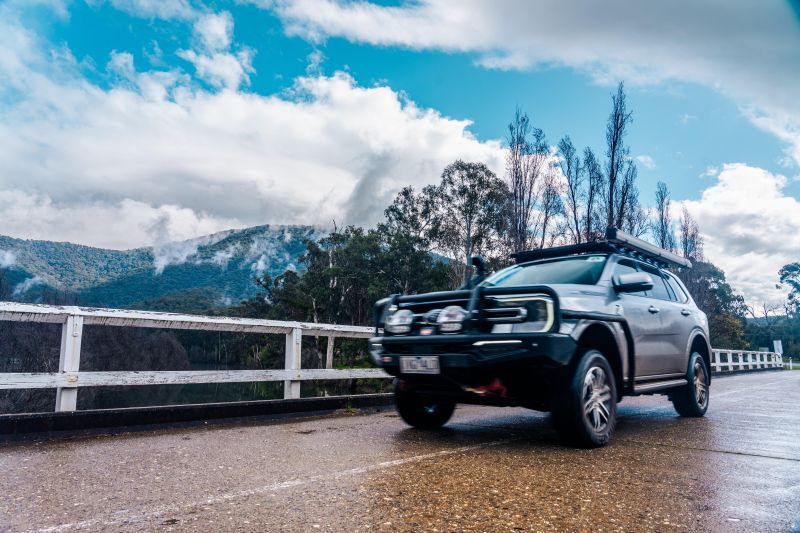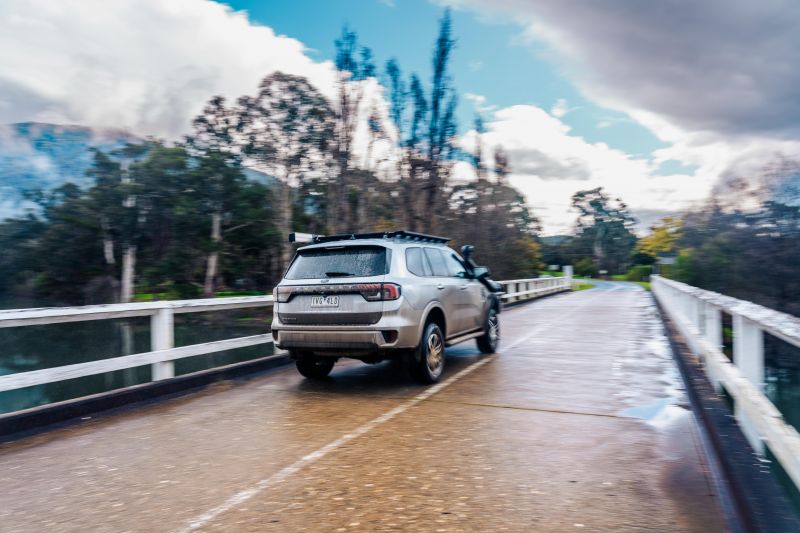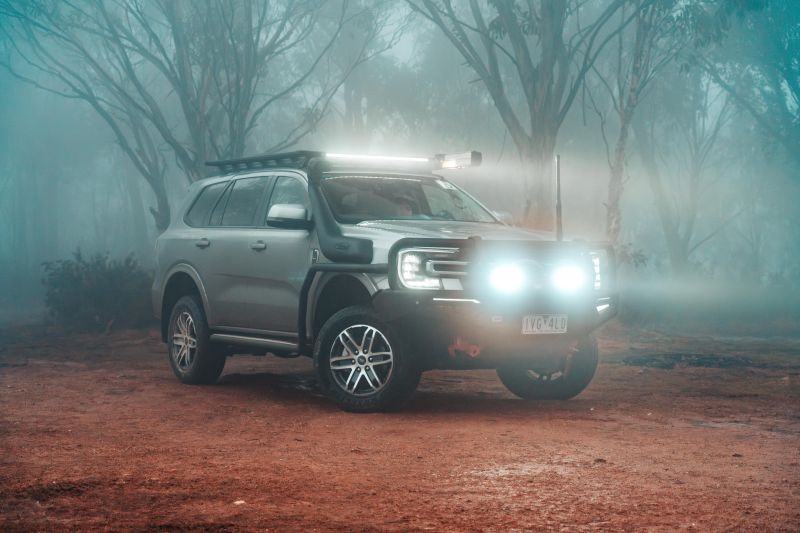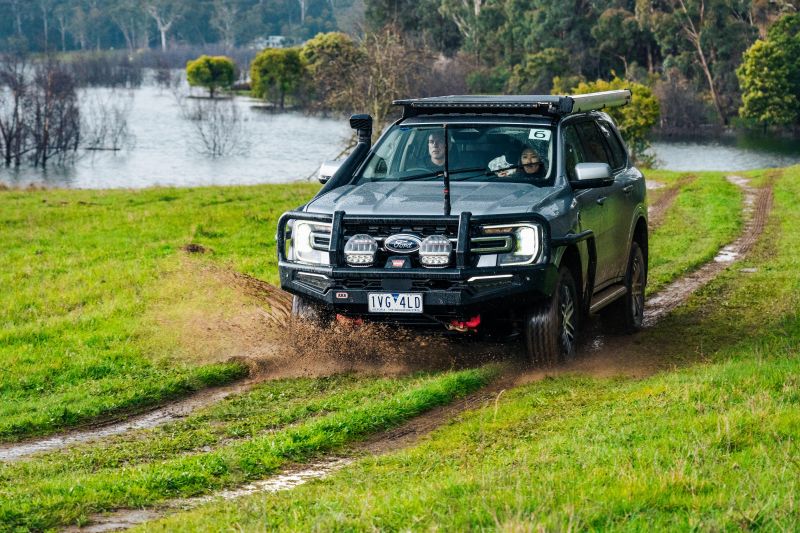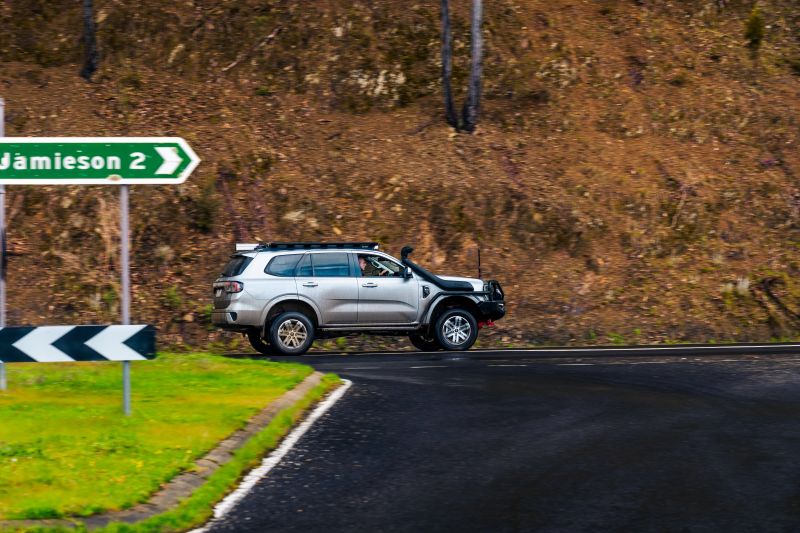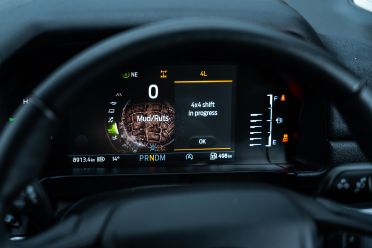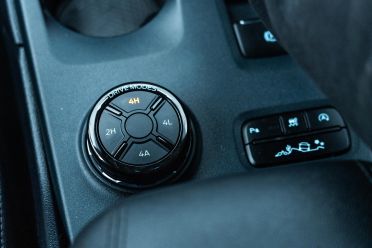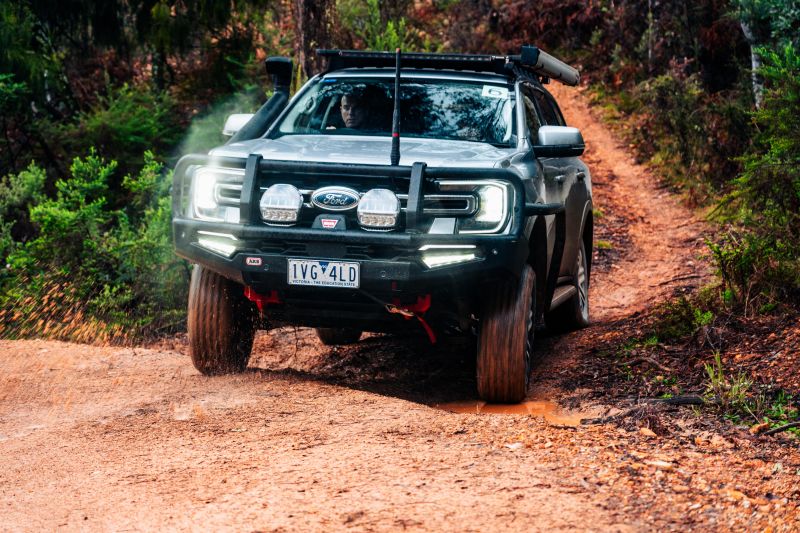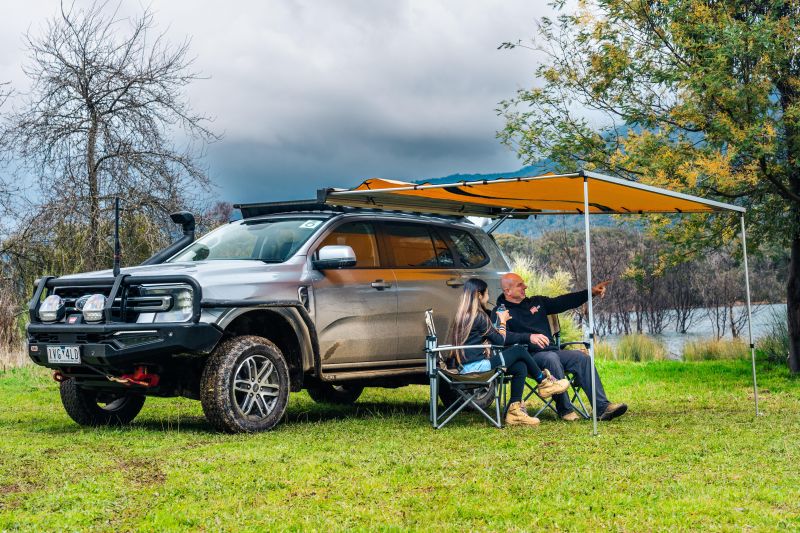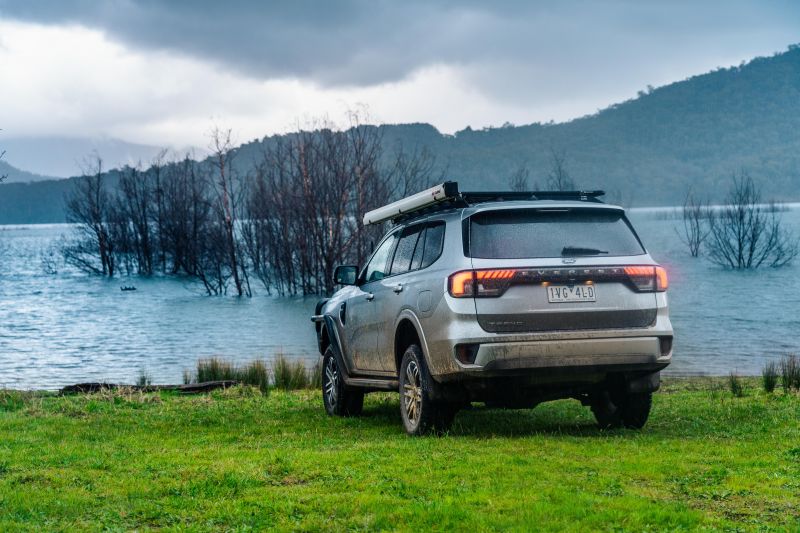Australia is a vast nation, geographically around the same size as the USA… but is sparsely populated with less than a tenth the people.
That leaves us with remote, uninhabited areas of wild lands filled with opportunity, solace and adventure. Throw in a broad array of landscapes, flora and fauna, and a diversity of terrain ranging from snow-covered alps to sandy deserts, and our island nation is the perfect adventure playground.
Aussies love the outdoors. They love exploring, and there is no better place to go off-roading when you consider the diversity of tracks, scenery, and safety our country presents.
It’s a given that the best country in the world for off roading will also have the best four-wheel drives, and we’ve seen countless manufacturers test and develop rugged off roaders right here in our own backyard.
Without a doubt Australia has the best development and testing areas for 4×4 vehicles and gear, and a substantial industry supplying the world with products that take off-roaders to new levels, making it safer, more enjoyable, and more accessible.
As far as 4WD vehicles go, there’s plenty of hype around the Australian dual-cab sector. We’ve recently seen Ford with the Ranger step up as a real contender to take on the dominance of the Toyota HiLux.
But of even more interest to me are the wagons that come off the back of the dual-cab success. In regards to the above battle, the Ford Everest sits in the same category as the Toyota Fortuner – yet the Everest dominates the category and even outsells the legendary Toyota Prado at times.
So what is all the hype about? Let’s take the Everest off-road and see how it goes. But not just any Everest, let’s go a step further with a fully accessorised Everest, kitted out with a range of Australian aftermarket products designed to enhance your experience.
In this case the accessories are from ARB, a company founded in a suburban Melbourne garage back in 1975. It’s now among the biggest aftermarket 4×4 designers, manufacturers, and suppliers in the world.
For this trip we’re heading northeast out of Melbourne to one of the most iconic 4WD destinations our country has to offer. It’s the Victorian High Country (VHC), an area filled with history, mystery, adventure, and remoteness, and it is literally just a few hours from Melbourne.
For more than 20,000 years Indigenous Australians trekked through this harsh and unforgiving region.
From the wetlands of Lakes Entrance in the south to the plentiful valleys of the Bogong moths in the north, the high country delivers resources, food, water… and some of the most stunning vistas on earth.
The discovery of gold near Beechworth in 1852 changed the area forever as a flood of European and Chinese opportunists poured in, establishing trade, roads, towns, businesses, legends, crime, mystery and murder all fuelled by gold fever.
In more recent years and with the growth of four-wheel driving and camping, the region has become famous for its unique blend of history and natural beauty.
Like any four-wheel drive or outdoor adventure, our trip starts with planning.
How far are we going? Where will fuel be available? What gear will we need? Is the vehicle suitably equipped? What clothing will we need, and what will we eat?
These are some of the questions that should be asked and answered in preparation for such an outing.
It’s also worth noting in some cases travelling to remote areas may require permits or particular equipment. In this instance, there are defined Alpine Regions that legally require visitors to carry correctly fitting snow chains.
We have though planned a route that will take us to one of the most popular areas for snow that doesn’t require the carrying of chains.
Mt Skene is a popular High Country destination reached via a scenic, meandering road that climbs steadily to 1570 metres above sea level, and offers stunning views in multiple directions.
It is one of the closest locations to Melbourne where enthusiasts can get vehicular access to the snow, and experience the thrill of driving through it.
We’d love to find some snow, but it’s unlikely as it’s late in the season and we’ve had a month of milder weather as we crawl out of winter.
Nonetheless, we’re willing to try our luck – and knowing the High Country, there’ll be plenty more to see and do along the way.
Cruising along the Hume Freeway we are whisked away from the concrete jungle and suburbia, and are treated to the beckoning light of a sunny pre-spring day. In a change of pace we leave the Hume at the Broadford exit and start our eastward trek towards the rugged Australian Alps.
The Murchison Spur lookout is our first stop before crossing over to Strath Creek. It’s a little-known yet stunning spot offering views across the Murrindindi Valley, past the lower reaches of the Eildon Reservoir and onto the same distant mountain range that is home to Mt Skene.
From there it’s an easy drive north along the King Parrot Creek, and then east again to the bustling town of Yea, a favourite for weekend tourers and trundling traffic.
Not only is Yea well placed as a lunch and rest spot for road trips out of Melbourne, it’s home to a number of popular bakeries, along with a healthy mix of cafes, pubs, restaurants and curio shops.
Other spots of note include the developing Yarck, the “serene” Bonnie Doon, and the ever popular village of Mansfield, which is always abuzz with its mix of nouveau eateries and breweries.
That now sees us virtually as far east as we are destined to travel on this trip and it’s time to head south, flank the eastern side of Eildon, and make our way to the iconic and historic township of Jamieson, nestled on the junction of the Jamieson and Goulburn Rivers.
Overall it’s been a cruisy three hour drive so far with the Everest. The ride is ultimately tuned for what this vehicle is about – touring! Being able to pack up the family or grab a few mates and get away, which are some of the core reasons Australian adventurers buy these vehicles, and a big part of why we are on the road today.
The Everest presents as comfortable, refined and well appointed, and the power delivery is smooth. Our only real gripe with the Everest is its transmission selector (clunky, unintuitive and requires constant checking to see what gear it’s in).
But with that aside, we are in search of adventure and something a little further off the beaten track and there are solid reasons as to why we chose the Everest for this trip.
Underneath its stylish exterior and classy interior sits a serious 4WD system that is ready to help when needed and we are about to put that to the test as we head east out of town and cross the Jamieson River. It’s not long before we hit the dirt and start the long winding climb towards the summit of Mt Skene.
The 4WD and drive mode selectors are easy to reach on the centre console, just south of the transmission controller. Like most 4WDs, high-range four-wheel drive can be selected on the fly – and there are no dramas as the transfer case engages the front driveshaft to offer more traction.
It’s a slow, steady and picturesque drive to the summit of Mt Skene and the road is lined with the typical native tall timbers, along with tight fern-lined switchbacks and fleeting, yet stunning, drastic views across the plentiful valleys and mountains of the Victorian High Country. The drive itself is not particularly challenging but the sweeping curves, distant views and fresh mountain air provide a calming effect as we rise from the valley floor and pass through the clouds.
On our way to the summit there are a number of enticing side tracks where your 4×4 skills, and 4×4, can be tested. Whilst we did tackle a few, our aim was to get to the summit and hopefully spot some snow, but the more we climbed, the more our expectations descended.
Sadly on our visit there was no snow and another heavy layer of low-lying cloud made the driving tough… let alone the photo opportunities!
But being amid the Victorian High Country affords a plethora of options. We made the decision to lose some altitude, chase some clearer skies, and see where some of the area’s other tracks may lead us.
And that, in essence, is one of the best things about the Victorian High Country; the ascents lead to summits and amazing views, and the descents lead to water. Combining the mountainous terrain, time of year, and our proximity to Lake Eildon, there was no shortage of water and a variety of picnic points and campsites!
Our day concluded on the edge of the swollen Goulburn River, as it feeds into the southern reaches of Eildon. The views were stunning, the water was peaceful, and a flock of inquisitive ducks was all we had for company.
We had had our fill of adventure, experienced a road trip full of sights, towns, scenery and challenge and were now taking in the tranquility and remoteness of the Australian Alps. Where else would you want to be?
Mt Skene is a popular track mainly because it is one of the closest places that has good snow falls and opportunities to drive through snow. It’s generally closed, and is managed in partnership by Parks Victoria and the Victorian 4WD Association. Access is only permitted with explicit permission through 4WD Victoria.
Getting there though was a splash of fun to say the least with both high and low-range options being exercised along the way in conjunction with the Everest’s factory fitted, selectable rear locker. In this particular Everest there are a number of upgrades enhancing the drive.
Old Man Emu Suspension puts a specifically tuned suspension solution under the Everest that improves clearance, handling, and comfort.
Not only does it provide added performance in off-road situations, but it also adds to the on-road manners and load-carrying ability, which in turn helps to accommodate the added accessories.
The ARB steel bull offers the best in protection and doubles as a mounting point for accessories such as the winch, driving lights, and communications antenna.
There’s a Base Rack on the roof for carrying extra gear and a Safari snorkel that protects the engine during water crossings.
At camp the ARB awning and camp chairs provide comfort and protection from the weather and the rear storage drawers, fridge, and kitchen have you covered for food and refreshments.
It’s a well-balanced and appointed package that complements the styling, performance, and practicality of the Everest, shifting it from a capable road tourer to a more adventure ready exploration vehicle.
Depending on your needs a setup like this, with more or less as required, offers any outdoor enthusiast the ability to go further, stay longer, and play harder.
Accessorising your vehicle in this manner is simply taking what is already a capable and solid platform and enhancing it for specific requirements, in a way that still keeps it legal, practical, and adaptable for everyday life and driving.
For information on the Ford Everest range and features, please visit the official Ford website here.
Click the images for the full gallery
MORE: Everything Ford Everest

